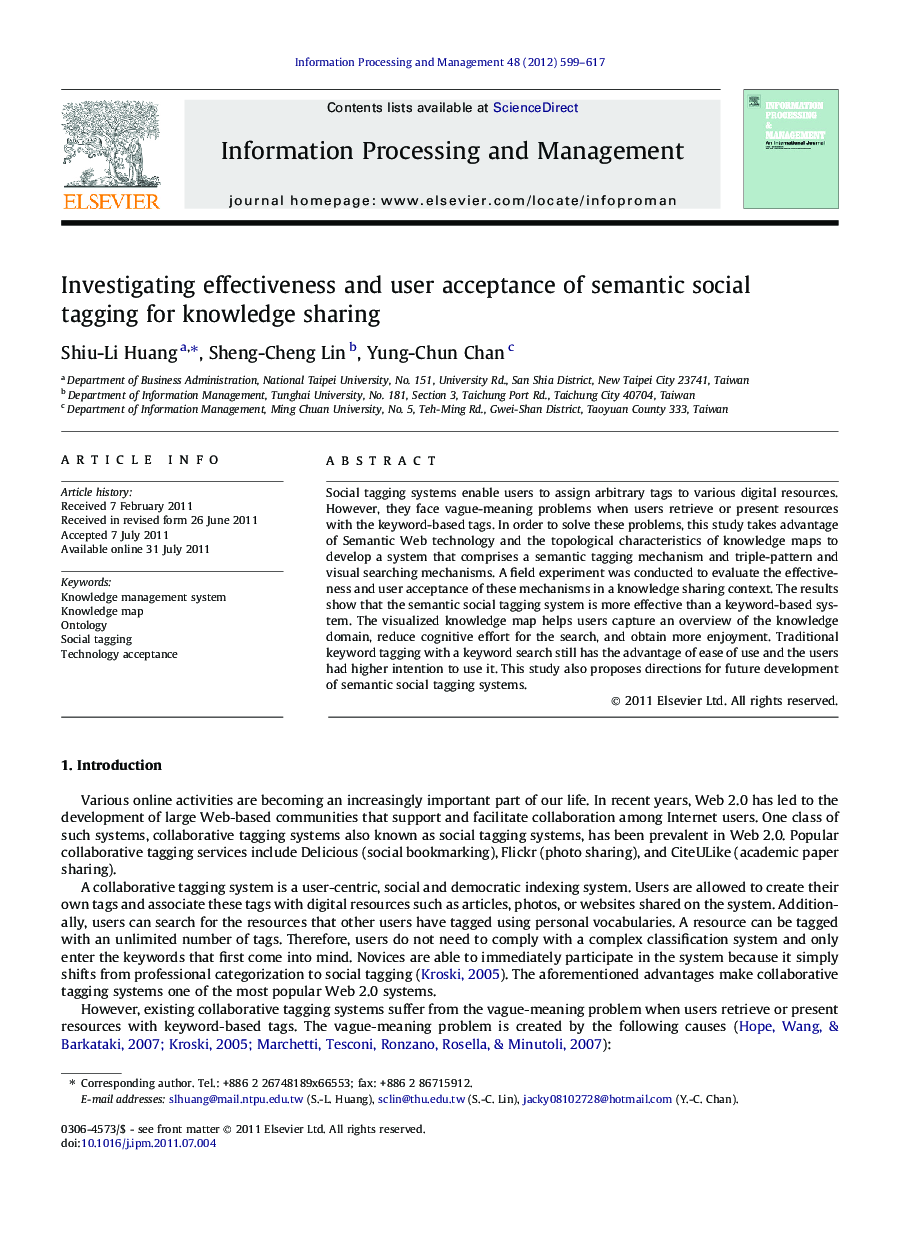| Article ID | Journal | Published Year | Pages | File Type |
|---|---|---|---|---|
| 515426 | Information Processing & Management | 2012 | 19 Pages |
Social tagging systems enable users to assign arbitrary tags to various digital resources. However, they face vague-meaning problems when users retrieve or present resources with the keyword-based tags. In order to solve these problems, this study takes advantage of Semantic Web technology and the topological characteristics of knowledge maps to develop a system that comprises a semantic tagging mechanism and triple-pattern and visual searching mechanisms. A field experiment was conducted to evaluate the effectiveness and user acceptance of these mechanisms in a knowledge sharing context. The results show that the semantic social tagging system is more effective than a keyword-based system. The visualized knowledge map helps users capture an overview of the knowledge domain, reduce cognitive effort for the search, and obtain more enjoyment. Traditional keyword tagging with a keyword search still has the advantage of ease of use and the users had higher intention to use it. This study also proposes directions for future development of semantic social tagging systems.
► Traditional keyword-based social tagging systems face vague-meaning problems. ► We design a system that comprises semantic tagging mechanism and triple-pattern and visual searching mechanisms. ► The semantic social tagging system is more effective than a keyword-based system. ► The visualized knowledge map helps users reduce cognitive effort and obtain more enjoyment. ► Users feel easy to use a keyword tagging system, which results in higher user acceptance.
